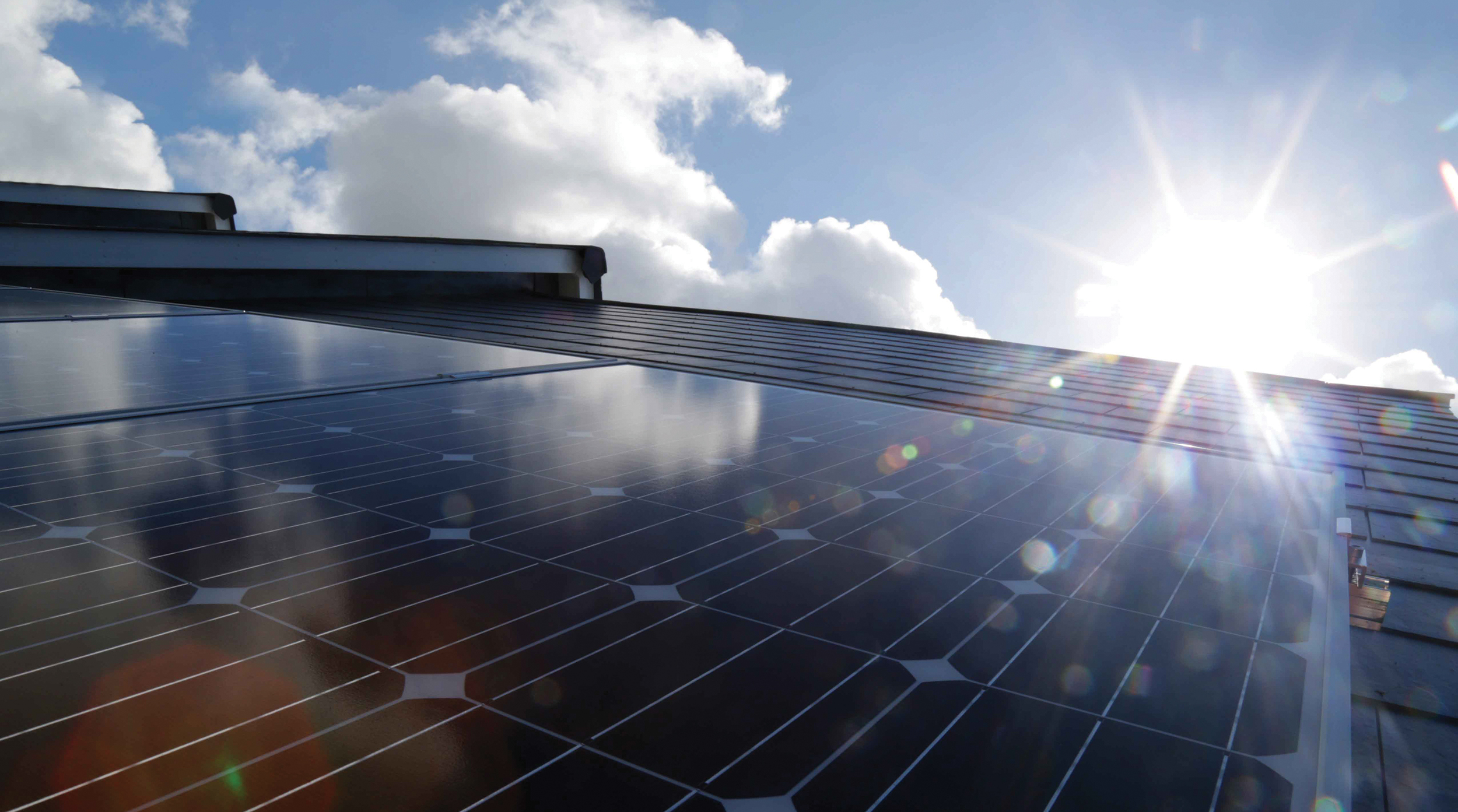
Put the power of the sun to work for you.
The goal of a solar power system is to efficiently convert energy from the sun into electric power that you can use in your home or business. Over time, the money you save from paying a lower electric bill-or eliminating your electric bill completely-may eventually pay for the original cost of the solar power system. And unlike fluctuating utility rates, the payments for your solar power system will be fixed over time, which is especially important if you are on a fixed income or are trying to stabilize cash flow.
From an environmental perspective, power generated by your clean solar power system is power not generated by polluting coal-fired utility plants. A solar power system can be a wonderful opportunity for you to contribute to a cleaner environment while saving money at the same time.
What’s more, you can pay for your new solar system with PACE financing. With up to 100% financing and no money down, a solar upgrade for your home has never been easier.
The Benefits of Going Solar
Because prices of solar photovoltaic (PV) equipment are coming down while utility rates in many parts of the country are going up, a solar power system may make economic sense for you. Likely changes in the way we pay for electricity (e.g. time-of-use billing, demand charges, etc.) may make the financial argument for solar even more compelling in the future. If you own or are contemplating purchasing a plug-in electric vehicle, you may save even more money by powering your vehicle with free energy from the sun as opposed to gasoline.
The Federal Investment Tax Credit allows purchasers of solar power systems to deduct 30% of the cost of the system dollar-for-dollar from their taxes. For homeowners with substantial tax liability, this can mean real savings on a solar power system. The benefits of the Federal ITC start to decline at the end of 2019, so it may make financial sense to initiate your solar power system project sooner rather than later. Consult your tax advisor for details about the Federal ITC.
Additionally, a recent study by the Lawrence Berkeley National Laboratory found that home values in California increased by four percent or more when equipped with a solar power system.
Solar Power Explained
A solar power system generally consists of three main components:
- Solar photovoltaic (PV) panels that convert solar energy into electric energy
- Inverters that convert the direct electric current (DC) that comes out of the PV panels into the alternating current (AC) that we use in our homes and businesses
- Balance of system (BOS) components: wires, connectors, DC power optimizers, etc. BOS also includes the racking that holds the PV panels on the roof or in ground-mounts
- A fourth component-an energy storage battery and associated energy management software-is becoming more economical and common.
Some buildings are more hospitable to solar power systems than others. To generate power most efficiently, solar PV systems should face south and should not be shaded by trees, buildings or other obstacles.
Choosing The Right Solar Power Installer
All Ygrene authorized independent solar contractors are licensed, insured, pre-screened and have been in the solar business for at least one year or more. Quality installers offer workmanship and equipment warranties and are transparent about when and how they use sub-contractors. Solar power is still unfamiliar technology for most homeowners. Don't hesitate to ask your contractor how they plan to achieve a quality solar panel installation and any other questions you may have.
Paying for Your New Solar Power System
Ygrene’s PACE financing offers many advantages:
- 100% Financing, No Money Down
- No Payments For Up To 12+ Months
- Based On Home Equity
- Repaid With Your Property Taxes
- No Minimum FICO Required
- Prequalified In Under 30 Minutes

